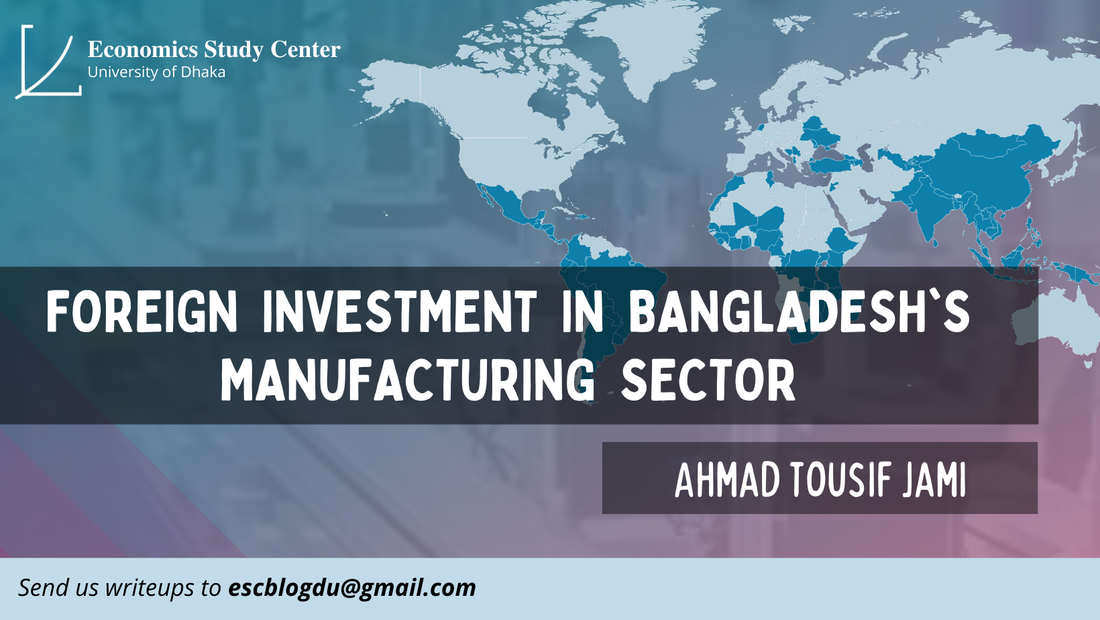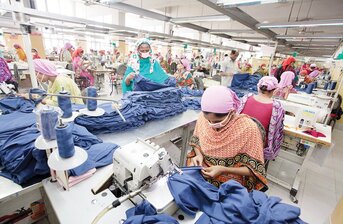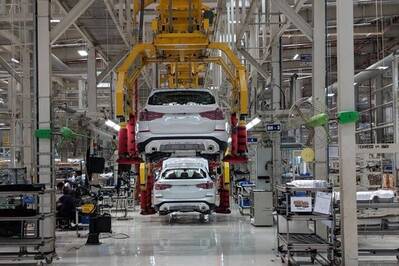ECONOMICS STUDY CENTER, UNIVERSITY OF DHAKA
|
Ahmad Tousif Jami Bangladesh is potentially a top five globally emerging economies for the next decade. Bangladesh has the world's second-largest RMG sector (Source: WTO). The nation also benefits from extensive remittance support, affordable low-skilled human resources, a booming pharmaceutical industry, a large agricultural sector, and more. All of this has contributed to consistent annual GDP average growth of six percent since the 1990s (Source: US Embassy, Bangladesh). Bangladesh has already qualified for the LDC exit, which is scheduled for 2026 and shows promise for the economy in the upcoming days. As the fastest growing economy in Asia (Focus Economics, 2021), Bangladesh has a lot to offer as a golden land for foreign investors. The country offers low-skilled human resources with competitive labor pricing. Bangladesh has a suitable geographical location for the logistical supply of raw materials when necessary through the Asia-Pacific region. The country holds close diplomatic connections with most UN member nations and does not have animosity with any country This makes Bangladesh a diplomatically safe and stable country to invest in. The nation also holds macroeconomic stability, offers an open and diversified economy, a legislative framework favorable for foreign businesses. Energy prices in Bangladesh are the most competitive in the region. Bangladesh also has a population of about 160 million (Macrotrends), offering a large consumer base with adequate purchase capacity for many markets. Products manufactured in Bangladesh can easily be exported globally by Asia-Pacific regional channels, enabling companies to expand their market with logistical supply convenience. Bangladesh will continue to enjoy tariff-free access to the European Union, Canada, Japan and GSP plus across many countries at least for the next five years. Furthermore, Bangladesh offers the most liberal FDI regime in all of South Asia, allowing 100% foreign equity with public exit policy, remittance of royalty, and repatriation of profits and income (Source: BCCHK). All of this tied together resulted in Bangladesh being a lucrative land for global investment. Bangladesh can heavily benefit from foreign manufacturing investment. First, Bangladeshi customers can access products at lower prices since shipping costs and import tax are cut low. Secondly, Bangladesh gets tax revenue from all profits made by the industry. The larger the profit of the investor, the more cut Bangladesh gets. Thirdly, it boosts export largely because it diversifies the Bangladeshi economy's export sector by offering new products. The benefits go beyond and help to make a good name as a country with quality manufacturing, enhancing both bilateral and multilateral trade. Japan automobile giant Honda is scheduled to expand its motorcycle plant in Bangladesh by 2021 for a new capacity of producing 200,000 units a year. Honda has been a manufacturer in Bangladesh since 2018, and after tasting success, they have been mainly expanding their manufacturing. Even the world’s top electronics brand Samsung is opening a manufacturing plant in Narsingdi, Bangladesh. An enormous $100 million is being invested in the Samsung manufacturing plant (Source: Samsung Bangladesh). Investments by such giant companies of their respective sectors highlight the excellent investment condition in Bangladesh. Companies like Samsung and Honda investing in manufacturing in Bangladesh further opens the door for future investments. This can be the start of a trend where other companies develop the confidence to invest more in Bangladesh. The transition period from an LDC to a developing country is a fantastic time to invest in setting up manufacturing industries in Bangladesh. This is because as the economy blooms, so does the direct cost to invest there. Other large international companies could follow the footsteps of Samsung and Honda and invest in Bangladesh for manufacturing. Although Bangladesh's economy has many strong sides, there is still room for improvements in certain areas. Several factors tied together have resulted as a hindrance for foreign investment in Bangladesh manufacturing. The factors include but are not limited to weak infrastructure, corruption, cumbersome bureaucracy, and the absence of an effective mechanism for alternative dispute resolution (Source: BCCHK). These are significant factors that require immediate attention. Solving these significant issues can lead to more global projects in Bangladesh. Identifying where reform is necessary for infrastructure and focusing on it through a Public and Private Partnership could solve weak infrastructure. The government can take a firm stance on transparency to fix the issue of corruption. Young leaders need to come up to combat the issue of efficiency and bureaucracy. The government already has many skill-building projects requiring proper monitoring and financing to reach a beneficial impact. Although there are multiple plausible strategic approaches to solving the issue, the mitigations mentioned can be fruitful for a head start. Bangladesh is a perfect combination for international manufacturer investors because of a competitive market, logistical geo-position, competitive cost structure, and business-friendly environment. If companies like Samsung and Honda keep investing and new companies join, Bangladesh's economy can primarily benefit. It is only a matter of time when the world sees a rise of quality, affordable “Made-in-Bangladesh” products across various fields. We hope for that future! Author
4 Comments
4/10/2024 11:58:04 pm
Thanks for your post.cube Star International Ltd.is a Global Trade Navigator.We simplify import and export.
Reply
4/11/2024 02:15:35 am
Thanks for your post.cube Star International Ltd.is a Global Trade Navigator.We simplify import and export.
Reply
4/24/2024 05:32:31 pm
Thanks for your post.cube Star International Ltd.is a Global Trade Navigator.We simplify import and export.
Reply
Top 10 Export Import company in Bangladesh
4/24/2024 10:47:25 pm
Thanks for your post.cube Star International Ltd.is a Global Trade Navigator.We simplify import and export.
Reply
Leave a Reply. |
Send your articles to: |




